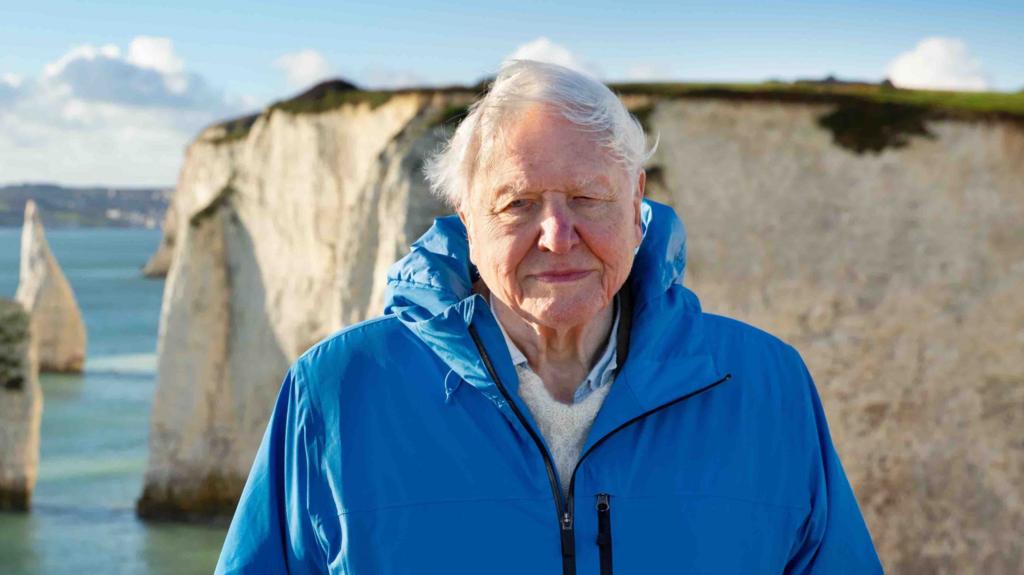Sir David Attenborough, on the eve of his 99th birthday, unveils what he considers a pivotal film in his illustrious career: Ocean. This feature-length documentary, he believes, could be instrumental in safeguarding biodiversity and mitigating the effects of climate change.
Sir David states: “After nearly a century on this planet, I’ve come to understand that the most crucial ecosystem isn’t on land, but at sea.” The film posits the ocean as the Earth’s life support system and humanity’s strongest ally against climate catastrophe, highlighting the critical juncture at which our oceans stand.
The London premiere at the Royal Festival Hall featured a “blue carpet” and notable attendees, including King Charles III, who expressed surprise at Sir David’s upcoming birthday. The event also drew a star-studded guest list, featuring Geri Halliwell-Horner, astronaut Tim Peake, James Blunt, and Cara Delevingne.
Prince William also attended a separate matinee screening with hundreds of schoolchildren. Producer Toby Nowlan emphasizes that Ocean transcends typical Attenborough fare. “This isn’t about showcasing new behaviors; it’s his most significant message yet,” he explains.
The film chronicles the dramatic transformations in the ocean’s health and our understanding of it throughout Sir David’s lifetime. He recalls his first scuba dive on the Great Barrier Reef in 1957: “The spectacle was so breathtaking, I momentarily forgot to breathe.” Since then, a catastrophic decline in marine life has ensued, prompting his urgent warning: “We are almost out of time.”
Ocean presents stark footage of the devastating impact of bottom trawling, a widely practiced fishing method. The film vividly demonstrates how this industrial fishing practice depletes ocean life, showing how trawler nets scour the seabed, indiscriminately capturing and discarding vast quantities of marine organisms. Sir David observes, “It’s hard to imagine a more wasteful fishing practice.”
This process also releases significant amounts of carbon dioxide, exacerbating climate change, yet bottom trawling remains legal and even government-subsidized in many regions. While the state of the ocean has nearly driven Sir David to despair, he finds hope in the remarkable resilience of marine ecosystems, their capacity for faster recovery than previously believed.
The story of whales exemplifies this optimism. The 20th-century whaling industry decimated whale populations, pushing many species to the brink of extinction. Sir David recalls the dire situation: “I thought it was over. We had lost the great whales.” However, the 1986 global ban on commercial whaling led to a significant population rebound.
Director Keith Scholey, a long-time collaborator, notes Sir David’s enduring energy and commitment. “Every project with David is a learning experience,” he says. “He keeps you sharp, always fostering a highly creative environment.” Ocean‘s core message is one of hope: international pledges to protect a third of the world’s oceans, coupled with potential action at a forthcoming UN conference, could be transformative.
Sir David concludes, “The ocean can recover and thrive beyond anything we’ve ever witnessed. This is our chance to safeguard our climate, food security, and our home.” As he approaches his 100th year, his unwavering dedication to conservation continues, culminating in this powerful cinematic plea for ocean protection.
Ocean opens in cinemas nationwide on Thursday.
Sign up for our Future Earth newsletter to stay informed on the latest climate and environmental news from the BBC’s Justin Rowlatt. For readers outside the UK: sign up here.
Half a century after the world’s first deep sea mining tests picked nodules from the seafloor off the US east coast, the damage has barely begun to heal.
Animal lover Max Evans-Browning is hoping Attenborough will see his drawings with the power of social media.
Major oil spills can be catastrophic for seabirds and marine life. Nearly 15 years on from the biggest marine spill in history, are we any better at cleaning up oil at sea?
Antarctica’s remote and mysterious current has a profound influence on the climate, food systems and Antarctic ecosystems. Can we stop it weakening by 2050?
The remains of a mammoth found in the Cotswolds are on display at the Corinium Museum.

